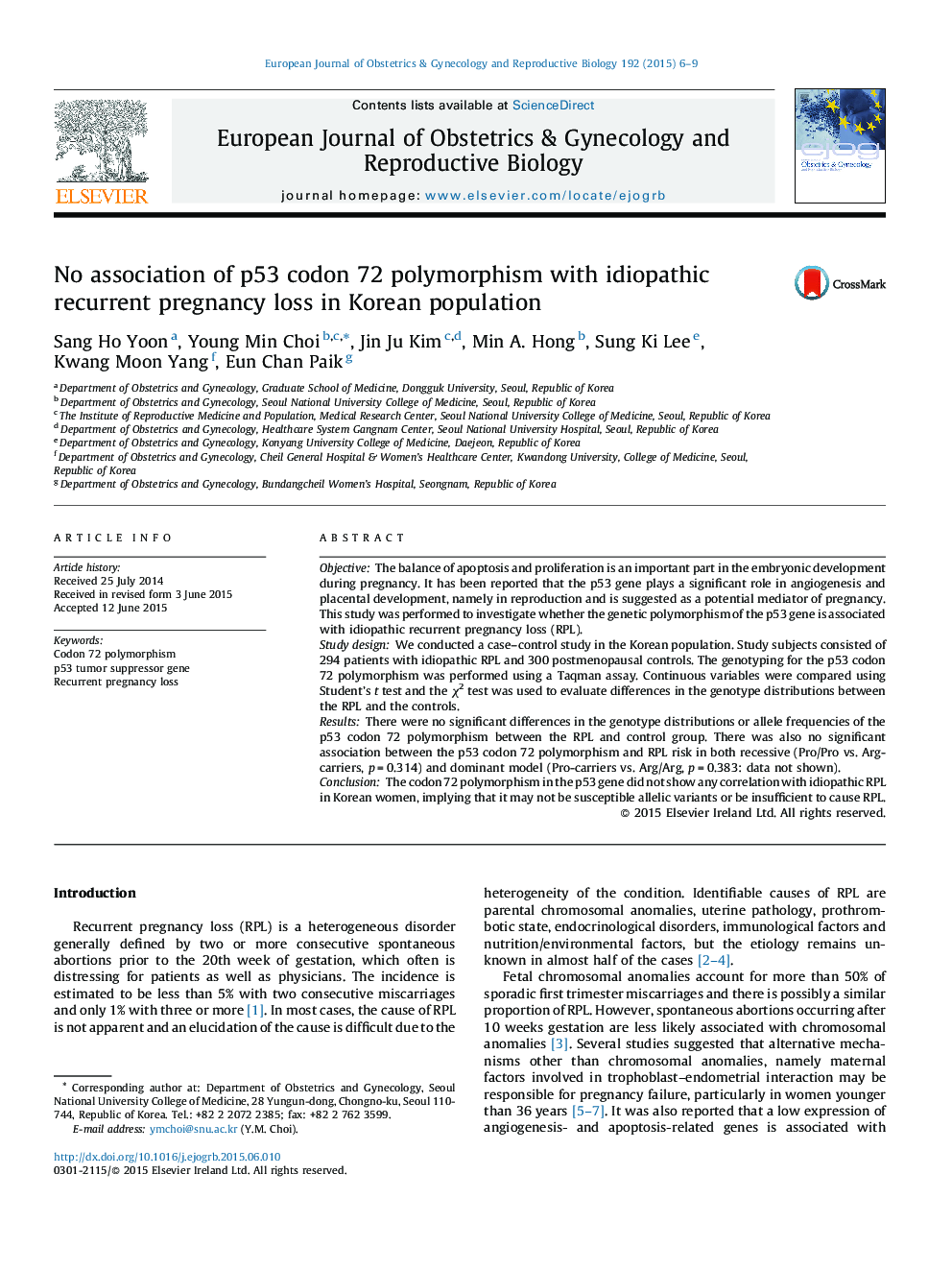| Article ID | Journal | Published Year | Pages | File Type |
|---|---|---|---|---|
| 3919655 | European Journal of Obstetrics & Gynecology and Reproductive Biology | 2015 | 4 Pages |
ObjectiveThe balance of apoptosis and proliferation is an important part in the embryonic development during pregnancy. It has been reported that the p53 gene plays a significant role in angiogenesis and placental development, namely in reproduction and is suggested as a potential mediator of pregnancy. This study was performed to investigate whether the genetic polymorphism of the p53 gene is associated with idiopathic recurrent pregnancy loss (RPL).Study designWe conducted a case–control study in the Korean population. Study subjects consisted of 294 patients with idiopathic RPL and 300 postmenopausal controls. The genotyping for the p53 codon 72 polymorphism was performed using a Taqman assay. Continuous variables were compared using Student's t test and the χ2 test was used to evaluate differences in the genotype distributions between the RPL and the controls.ResultsThere were no significant differences in the genotype distributions or allele frequencies of the p53 codon 72 polymorphism between the RPL and control group. There was also no significant association between the p53 codon 72 polymorphism and RPL risk in both recessive (Pro/Pro vs. Arg-carriers, p = 0.314) and dominant model (Pro-carriers vs. Arg/Arg, p = 0.383: data not shown).ConclusionThe codon 72 polymorphism in the p53 gene did not show any correlation with idiopathic RPL in Korean women, implying that it may not be susceptible allelic variants or be insufficient to cause RPL.
